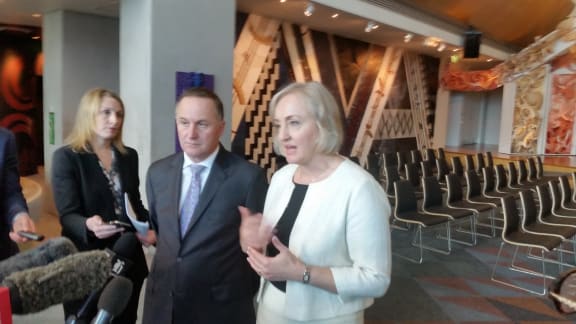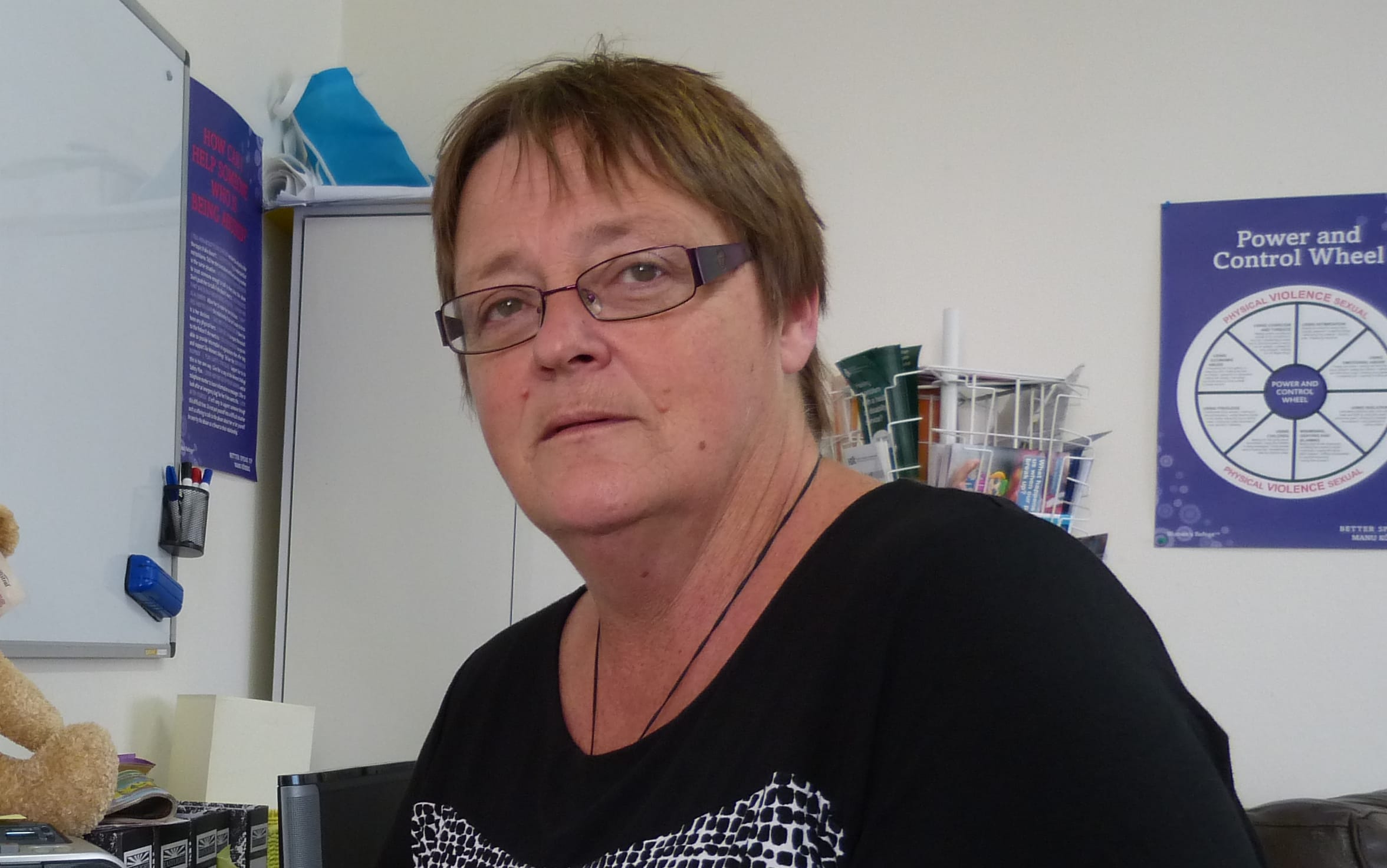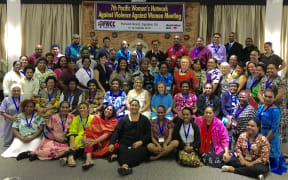An overhaul of New Zealand's family violence laws has been revealed, aimed at faster and more effective intervention.

Police respond to about 110,000 family violence call-outs every year, with children present at two thirds of those events. Photo: RNZ / Cole Eastham-Farrelly
The changes were announced today by Prime Minister John Key and Justice Minister Amy Adams in Wellington.
The new measures include flagging all family violence offending on criminal records to make sure the courts and police know people's history.
New offences of non-fatal strangulation and assault on a family member will be created, and will carry tougher sentences than common assault.
Ms Adams said research showed non-fatal strangulation was a common precursor for more serious attacks, including homicide.
"The thought of a man using physical strength to restrict a woman's ability to breathe is one of the most terrifying situations imaginable," Ms Adams said.
"Worse than that, we now know it is very clearly linked to high-risk escalating behaviour, and we need the system to know that, and to respond appropriately."
Coercion to marry will also be criminalised, and tougher penalties for people who commit crimes while subject to protection orders will be enforced.
Ms Adams said New Zealand's rate of family violence was horrendous.

Prime Minister John Key and Justice Minister Amy Adams Photo: RNZ / Eric Frykberg
"It has a devastating impact on individuals and communities, and a profound impact that can span generations and lifetimes.
"We are focused on better ways to keep victims safe and changing perpetrator behaviour to stop abuse and re-abuse.
"This is about redesigning the way the entire system prevents and responds to family violence."
The new measures will cost about $130 million over four years and it is hoped they will prevent about 2300 incidents each year.
Police respond to about 110,000 family violence call-outs every year, with children present at two thirds of those events.
Mr Key said the changes wouldn't fix the problem, but they were a start. He condemned such violence in homes.
"To the perpetrators of this misery I say this: recognise what is going on in your home and take responsibility for it," Mr Key said.
"A good father, a good step-father and a good man does not hit, intimidate or control his spouse, partner, ex-partner or her children. The same goes for women who are abusers.
"You do not create a better family by hitting them, belittling them, or by making them live in fear of you.
"You do not own your spouse, your partner, your ex-partner, your children or your step-children."
'There are more imaginative responses'
But lawyers who dealt with family violence issues have expressed concerns about the reforms, saying they do not go far enough and would only work if they are well-resourced.
Dunedin lawyer Anne Stevens told Nine to Noon the factors that led to family violence started in childhood and the government's reforms did nothing to address this.
"It is quite depressing that it is the same sort of crimes coming before the court with the same responses," she said.
"There are more imaginative responses that could be far more constructively applied that the money is not being put into."
Ms Stevens was the lawyer who acted for Dunedin mother, Katharine Webb, whose two children were fatally shot in their home in 2014 by their father Edward Livingstone, before he turned the gun on himself. Mr Livingstone had repeatedly breached protection orders that were in place.
Meanwhile, south Auckland barrister Catriona MacLennan said she was worried about how effectively the new laws would be policed and enforced.
"The key problem has always been not that our laws aren't good, it's a lack of enforcement and resources. The government is going to provide a $130m over four years to resource this package - that's good, that's some money, but as a compraison, the government spent $300m on the Rugby World Cup."
Ms MacLennan said the Family Court needed to treat violence more seriously.
Changes welcomed by frontline agencies
The new laws were welcomed by the chief executive of Women's Refuge, Ang Jury.
"It should have excellent spin-offs," she said.
"Some of these things are going to take a bit of time to bed in, but making protection orders easier to get will make a big difference.

Ang Jury said the changes should make a big difference to protection orders. Photo: RNZ / Philippa Tolley
"The other thing that will help is the attention given to victims' safety in bail decisions."
The changes were also well received by Deputy Police Commissioner Mike Clement.
"I think it is very fitting that government is thinking about having the right legislative framework in place to be able to deal with high end perpetrators of family violence," he said.
"From a policing perspective it is the right thing to do to do, making sure the system is joined in the right way to bring reassurance to victims."
Philippa Ballard chairs the Birthright Trust, which works with families with one parent.
She also welcomed the changes.
"Anything that is an impediment to having a rich and fulfilling life needs to be addressed," she said.
"Family violence is one of those things and if we can find a way to reduce, minimise or eliminate family violence, everybody would be better off."
Last year, Ms Adams released a discussion document on strengthening the nation's response to family violence.
It attracted nearly 500 submissions and about two thirds of them wanted responses to be flexible and targeted at different population groups.






